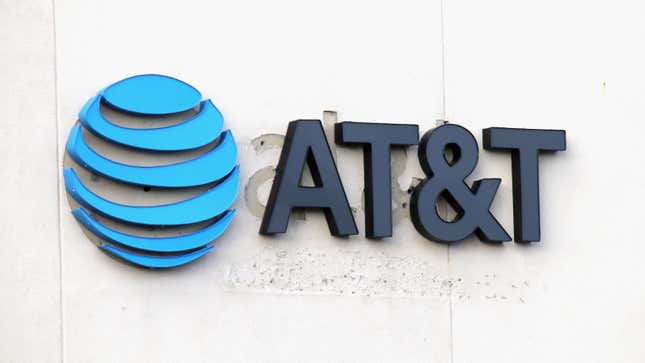
Remember when we said killing Net Neutrality could lead to internet service providers charging more for specific content? Paid-prioritization or internet ‘fast lanes’ were and still are a major concern for Net Neutrality supporters. With good reason, too. We’re starting to see that concern manifest into reality. As reported by The Verge, AT&T will not count the data its subscribers use streaming HBO Max toward their data caps—but it will count other platforms like Netflix and Disney Plus. Consumers already deal with arbitrary data caps, overage fees, limited or no choice of broadband service providers, and 20 states that have laws against municipal broadband. Zero-rating schemes, like AT&T is offering here, only creates more problems for consumers.
Since the FCC repealed Net Neutrality in 2017, there’s been plenty of evidence to show that ‘free’ streaming will eventually lead to ISPs increasing their internet package prices. Zero-rating, or when an ISP offers preferential treatment toward one of its services by not counting its use toward their subscribers’ data caps, was banned for a brief period of time, between 2015 and 2017 before the FCC repealed Net Neutrality. Zero-rating schemes ‘distort’ the normal effects of ISP competition because it only focuses on data volume and speed, not other services offered
“This is what we have been saying since the beginning,” said Katharine Trendacosta, lead policy analyst for the Electronic Frontier Foundation (and former deputy editor of io9). “The consequences of repealing Net Neutrality wouldn’t have happened immediately because acquisitions like this take time to finalize.” Once the legislation was out of the way, it cleared a path for ISPs to participate in unethical practices like zero-rating. We should expect to see more zero-rating as times goes on if nothing is done to bring back Net Neutrality.
Not only that, these kind of consumer ‘deals’ make quarterly profits to telecom investors look better than they might actually be. It’s not about getting more subscribers or investing in broadband infrastructure, said Trendocosta. It’s about making ISPs look more profitable only in the short term to appease investors.
Speaking to The Verge, an AT&T representative said HBO Max is using AT&T’s “sponsored data” system, which allows any company to pay to excuse its services from data caps. Netflix, Hulu, or any other streaming service could pay ISPs to do this. (Except Spectrum, which isn’t allowed to have data caps at all until seven years from Charter Communications’ 2016 acquisition of Time Warner Cable and Bright House Networks. This was imposed by the FCC.) However, since AT&T owns HBO Max, there’s nothing to pay. But, as The Verge posits, AT&T can still count it as revenue and HBO Max can count it as an expense, which seems like a loophole come tax season.
AT&T acquired WarnerMedia in 2018, which owns HBO. It launched HBO Max streaming service last month, May 2020. AT&T has not responded to Gizmodo’s request for comment.
Zero-rating effectively leads to de facto ISP monopolies, which is exactly what Net Neutrality tried to prevent in the first place, and ends up creating “less competition and less consumer choice,” said Trendocosta. It’s also further proof that data caps are arbitrary restrictions placed on consumers as a means to charge them extra for going over their data limit. As we’ve seeing throughout the course of the current covid-19 pandemic, it was super easy for ISPs to suspend data caps or waive overage fees.
If nothing else is done from here, it’s likely we’ll see more of the same happening from other ISPs too. The streaming wars have only begun.